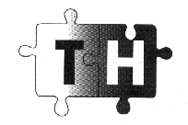We provide a flexible programme embracing coaching, mentoring training based upon our key management and development framework.
Framework for facilitation – our methodology
The flexibility of a coaching and mentoring relationship takes place within a framework related to the job and the person. This is based upon the management model that covers skill with execution.
- Competency grid – key areas – critical tasks – critical competencies [competencies are the knowledge, skills and ability to apply the knowledge and skill].
- The three phase management model covering control, objectives and actions.
- Framework for development – key areas – management model aspects – work and training objectives and standards.
What we bring
We believe that staff developing themselves to operate more effectively in an organisation and beyond often need:
- structure for their learning
- information
- ongoing support
- an impartial sounding board
How we structure our work with you
Our approach is to help managers and supervisors operate more effectively and harmoniously within the organisation. To do this we will:
- Find out what your staff development needs and goals are
- Work in partnership to deliver a time and cost effective plan of action for staff development – remaining sensitive to the prevailing management in the firm
- Carry out and review the work done to plan the next step.
Advantages
The advantages of learning and developing through coaching and mentoring are that people do not need to spend large amounts of time away from their jobs but they retain the advantage of having a skilled facilitator on hand to guide their learning and provide support and information when needed.
Results and outcome
Managers and supervisors need to take their jobs in their stride and also develop their ability to lead others rather than do the work themselves and to strike the right balance between delegation and control. They also need to understand their job roles and responsibilities, build effective trusting working relationships to maintain the best outcomes form the individual and organisational resources. To operate in this way individuals need to continue to learn from and build on experience.
Coaching and mentoring programmes support these outcomes.
Coaching
Coaching is about helping another person develop, learn and perform more effectively. The aim is to help a member of staff do their job more effectively ans with greater ease and confidence.
By working one-to-one with members of staff we help them identify:
- specific problems or areas they wish to work on
- what they want to achieve through the coaching process (both short and long term)
- the options they have open to them
- goals and review stages
Because people do not all learn in the same way we believe we need to take account of the different learning styles and preferences of the individual we are working with to ensure a successful outcome.
Mentoring
A mentor is a confidential coach and sounding board, accustomed to identifying areas for individual improvement and to developing positive and effective approaches to assist the individual to apply the full extent of their learning and consolidate their technical and professional skills more effectively into their day-to-day working activities.
The coaching and mentoring programme options
The programme can range from one session to a series of sessions, depending on the need of the individual and the issue being worked on. At the outset we would aim to agree the scope of the coaching process with the member of staff, against the backdrop of the school’s resources.
Training
If several members of staff within the organisation share a need for knowledge or skill development the most cost effective wat of meeting that need in a way that makes good use of their time may be through training. We are able to tailor programmes to meet a range of requirements.
